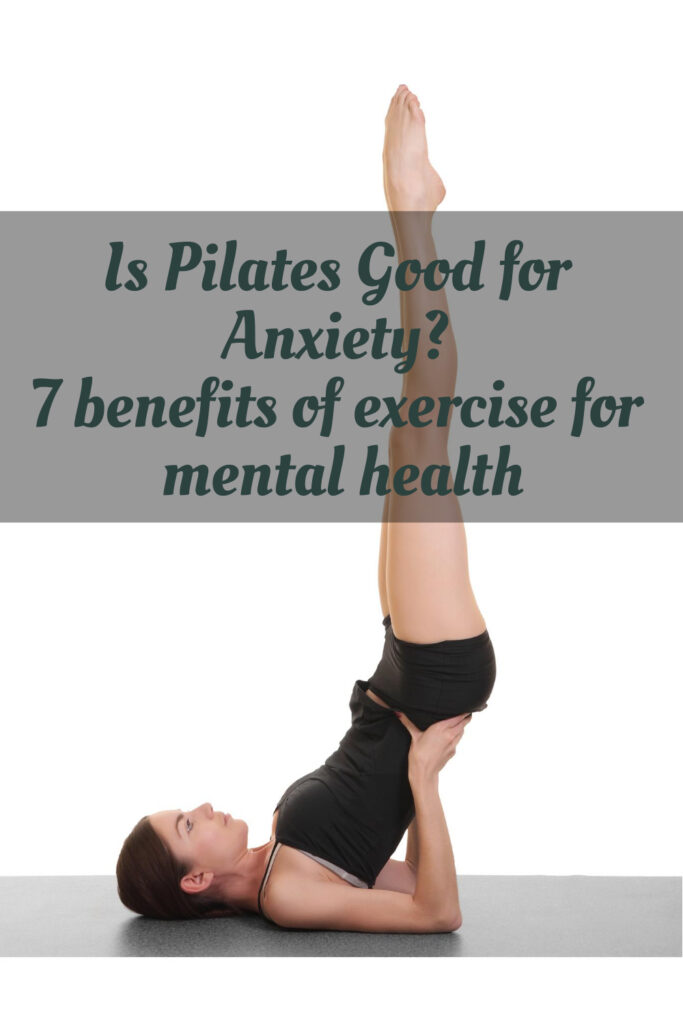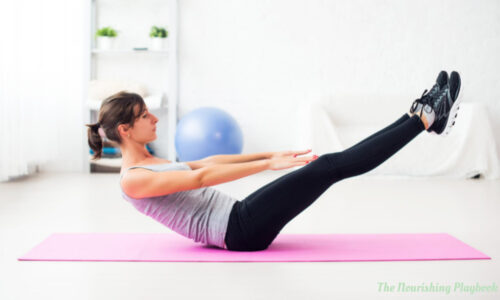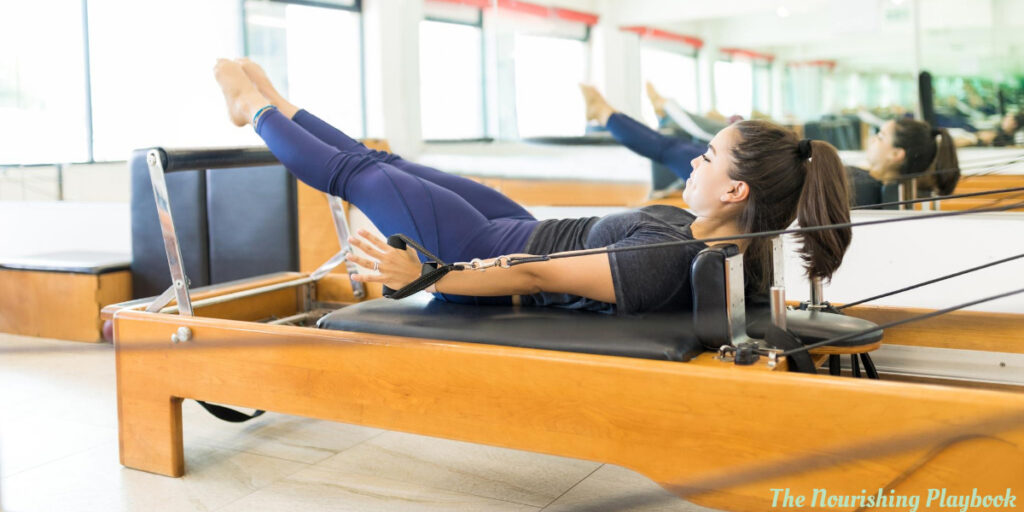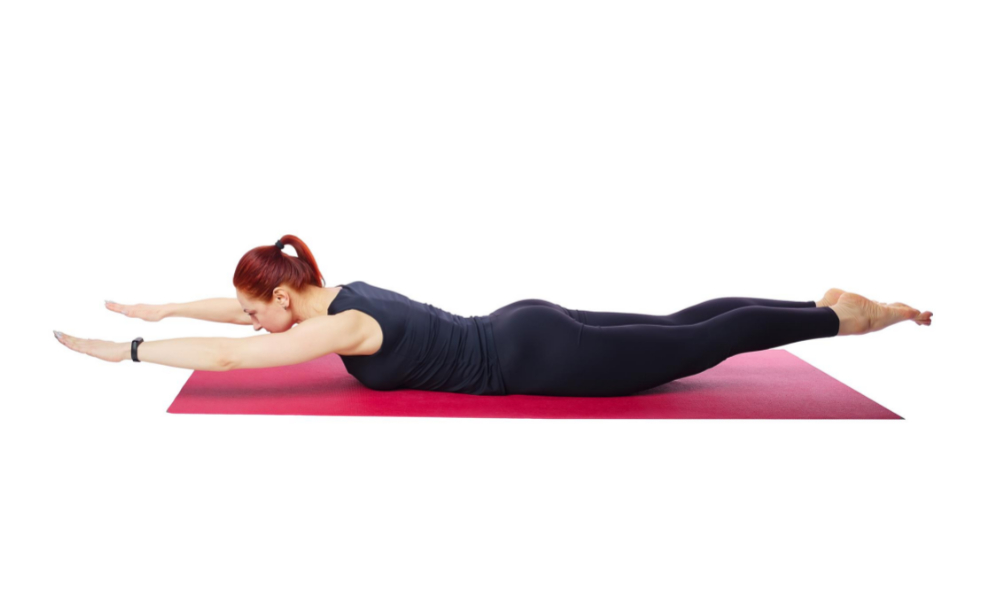Anyone who has ever struggled with anxiety knows that it can be incredibly debilitating. Anxiety can make it difficult to concentrate, lead to sleepless nights, and cause a general feeling of unease and discomfort.
According to the Anxiety and Depression Association of America, anxiety disorders are the most common mental illness in the U.S., affecting 40 million adults each year. While there are many different treatments available for anxiety, one option that you may not have considered is Pilates.
Keep reading to see the answer to is pilates good for anxiety and how they can improve your overall mental health.
What is Pilates?
Pilates is a physical fitness system developed in the early 20th century by Joseph Pilates. It is based on the idea that if you train your body to be strong and flexible, you will also improve your mental well-being. The Pilates method combines stretching and strength training with mind-body awareness techniques to help you achieve a sense of calm and wellbeing. There are many benefits from the different variety of pilates available mat pilates, reformer pilates, aerial pilates, barre pilates etc
Is Pilates good for anxiety? How can it help to reduce anxiety?
Pilates is one of the best ways to reduce stress and anxiety because it requires you to focus your attention solely on yourself, clearing out thoughts before starting again with fresh lungs! The slow controlled movements allow for deep relaxation while focusing on what’s going inside us, which makes this exercise excellent in relieving tension throughout our bodies, including those pesky muscles we often forget until they’re tense.
In addition, Pilates studies have shown that practising this exercise can create more awareness around how things work within oneself, so there’ll never be any worries or fears when facing difficult situations, as you’ll always have the knowledge and understanding of your capabilities! Therefore, if you’re feeling anxious or stressed, take some time out for yourself and enrol in a few Pilates classes to re-centre and relax your mind and body. Let all your worries fade away, and start feeling great again!
Pilates can also help to improve mood and boost self-esteem. One study found that people who took part in eight weeks of Pilates classes significantly increased self-esteem and felt more confident about their bodies. They also had a reduction in body dissatisfaction, depression, and anxiety. An increase in energy level can also be another benefit of Pilates.
Some people found that pilates can improve sleep quality and promote overall mental wellbeing. When we’re stressed, our bodies go into “fight or flight” mode, making it hard to fall asleep and stay asleep. Pilates can help reduce stress and promote relaxation, vital for good sleep. If you have trouble sleeping, try doing gentle stretches or relaxation exercises before bedtime.
Benefits of exercise for mental health
Pilates is also an excellent exercise proven to impact one’s mental well-being positively. A 2013 study found that people who did Pilates had better mental well-being than those who didn’t exercise at all. The benefits of exercise for mental health include:
#1 Endorphins
Did you know that exercise releases endorphin, which helps with mental health?
Endorphins are hormones that block pain signals from the brain, and they are also responsible for the “runner’s high” that people experience after a long run. These endorphins are also associated with a decrease in anxiety and depression.
#2 Improved Sleep
Exercise can also help improve your sleep. A good night’s sleep is essential for mental health, and exercise can help you get the rest you need. Sleep is vital for mental health because it gives your brain a chance to rest and repair itself. It can also improve the quality of your sleep by reducing the amount of time you spend awake during the night.
#3 Reduced Stress
Exercise can also help reduce stress. Cortisol is a stress hormone that can impact mental health. Regular exercise can reduce cortisol levels in your body, which can help reduce stress.
By introducing pilates to your routine, you’ll learn how to incorporate breathing techniques with the exercises to assist with stress and anxiety reduction. The slow, controlled movements require focus and concentration, which can help to clear out anxious thoughts and relax your mind and body.
#4 Improved Cognition
Exercise, in addition to its physical health benefits, has been shown to have cognitive advantages. According to research, individuals who exercised regularly had better cognitive function than those who didn’t. Exercise improves memory, attention, and executive function in people with mental illness.
Exercise can also increase your focus and concentration. Another study found that people who exercised had better attention and focus than those who didn’t exercise. This can be beneficial for people who need to focus at work and accomplish tasks.
#5 Increased Happiness
Exercise can also lead to increased happiness. A study published in the journal Frontiers in Psychology found that people who exercised regularly were happier than those who didn’t exercise. The benefits of exercise for mental health include increased dopamine levels, which is a neurotransmitter that helps regulate mood.
#6 Enhanced Mood
Exercise can also increase serotonin levels. Serotonin is a neurotransmitter that plays a role in mood and anxiety. It is known to have a calming effect which can help with mental health. A study published in the journal Neuropsychopharmacology found that people exercising had increased serotonin levels. The benefits of serotonin for mental health include reduced anxiety and depression.
#7 Increased Confidence
Exercising may also make you feel better about yourself since it makes you more confident. When you look good, you feel great. Exercising can help you lose weight, build muscle, and tighten your body. People may feel better about themselves due to engaging in these activities because they help boost their self-esteem. This can have a beneficial influence on one’s mental wellbeing.
Is pilates good for mental health?
When people ask if pilates is good for mental health, the answer is a resounding yes! It’s a natural antidepressant that boosts endorphins, improves sleep, and lowers stress while aiding in thinking, happiness, confidence, and increased serotonin levels.
These are just some of the many benefits of exercise for mental health. Exercise is a great way to improve your overall mental health, and it is something that everyone should consider incorporating into their lives. If you are looking for a way to improve your mental health, try adding some exercise to your routine. You might be surprised at how much it can help.
Pilates is a great way to boost your mental well-being! Consider adding pilates exercise to your routine to reap the benefits for yourself.





